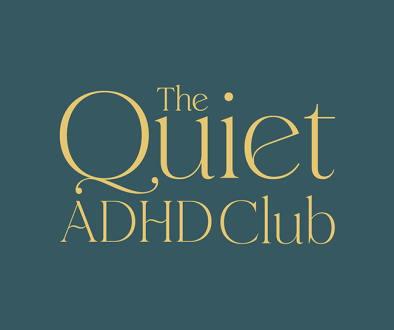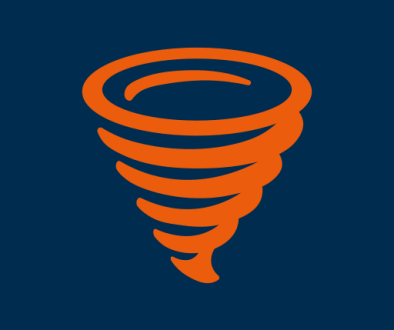What health conditions are co-occurring with ADHD and autism?
When I first started working with neurodivergent diagnoses a decade ago, little was known about the co-occurrences we can identify today. Here we look at what conditions can co-occur (also known as “comorbidity”) with ADHD and AS, and how understanding this can be helpful.
Key points:
- Research into ADHD and autism is relatively new.
- More people are being recognised as neurodivergent.
- Neurodivergent individuals often have co-occurring conditions.
- Gut health, hypermobility, and sleep issues are linked to neurodiversity.
- A holistic approach to understanding and treating neurodiversity is essential.
- Neurodivergent-informed therapy can help individuals and couples.
The evolution of research into Neurodivergence
Research around ADHD and AS is still quite young. For example, although the roots of ADHD research can be traced to the 18th century, it was only in the late 20th and early 21st centuries that it gained widespread recognition and acceptance. Similarly, the autism spectrum was not recognised until the 1970s with the foundational work of British psychiatrist Lorna Wing.
Nowadays, as many as 8% of adults globally could have some form of neurodivergence (Journal of Attention Disorders Volume 27, Issue 12). Recognition demands more research, and we now have more research than ever on these conditions. Many people have slipped through the cracks over the years, misdiagnosed as bipolar, BPD, or anxiety and depression. Now we understand that although these mental health conditions can co-occur with ADHD and AS, in many cases there is a need for further assessment.
And it’s not only mental health conditions that co-occur with neurodivergence. Research is now pointing to it as a full-body condition rather than just a neurological one.
Gut health and neurodivergence
Recent research has uncovered a surprising link between the gut and the brain, known as the gut-brain axis (PubMed). This connection suggests that the health of our gut microbiome, the trillions of microorganisms living in our digestive tract, can influence neurological conditions like autism.
Many people with autism experience gastrointestinal (GI) issues. The gut microbiome produces short-chain fatty acids (SCFAs), which can affect both gut health and brain development. An imbalance in the gut microbiome, particularly a lack of beneficial bacteria, may contribute to several symptoms.
By understanding the gut-brain axis and the role of the gut microbiome in neurodivergence, researchers hope to develop new treatments that target both the gut and the brain to manage symptoms. This could involve dietary interventions, probiotics, or other therapies aimed at restoring a healthy gut microbiome.
Recent research suggests a strong connection between gut health and ADHD symptoms. A 2020 study indicated that conditions like depression, anxiety, bipolar disorder, autism, and ADHD may share a common root: disruptions in brain function linked to neurotransmitters like serotonin and dopamine (Microbiology Research).
Interestingly, the gut microbiome, the community of microorganisms in our intestines, can influence these neurotransmitters. Studies in both animals and humans have shown that a healthy gut microbiome can positively impact mental health, potentially alleviating symptoms of ADHD (PubMed).
Recent studies have shown promising results in using probiotics to treat conditions like depression, anxiety, and stress. Building on this success, researchers are now investigating whether similar microbiome-based therapies could also effectively manage ADHD symptoms. While these approaches are still in the early stages of research, they offer hope for new and innovative treatments for ADHD.
Neurodivergence and hypermobility
Recent studies have revealed a strong link between neurodivergent conditions and hypermobility. Over half of individuals diagnosed with autism, ADHD, or Tourette syndrome exhibited higher levels of joint hypermobility compared to the general population.
Furthermore, neurodivergent individuals reported significantly more pain and dysautonomia symptoms, such as dizziness upon standing, which were directly correlated with the number of hypermobile joints.
Sleep issues and neurodivergence
Sleep issues are common in neurodivergent individuals. A significant percentage of autistic individuals experience sleep disorders, including insomnia, circadian rhythm disorders, and sleep apnea (Neurodivergent Insights). Autistic people often have genetic variations that impact their sleep-wake cycle, such as mutations in the CLOCK gene and melatonin receptors. These genetic differences can lead to difficulties falling asleep, staying asleep, and experiencing restful sleep.
Issues falling or staying asleep can have the following impact on autistic individuals:
- Cognitive function. Poor sleep can impair cognitive functions like attention, memory, and problem-solving, which can exacerbate challenges faced by neurodivergent individuals.
- Emotional regulation. Sleep deprivation can contribute to mood swings, irritability, and increased anxiety, which can be particularly difficult for ND.
- Sensory sensitivity. Lack of sleep can heighten sensory sensitivity, making it harder to manage sensory overload.
- Executive function. Sleep deprivation can impair executive function, making it more challenging to plan, organise, and manage tasks.
Individuals with ADHD are more likely to experience sleep problems compared to neurotypical individuals, starting around puberty. Common sleep issues with ADHD include difficulty falling asleep, staying asleep, shorter sleep duration, and nightmares (especially in children with insomnia). Sleep problems in ADHD tend to worsen with age.
The type of ADHD can influence sleep problems:
- Inattentive ADHD — later bedtime
- Hyperactive-impulsive ADHD — insomnia
- Combined ADHD — both poor sleep quality and later bedtime
Sleep issues can have the following impact on people with ADHD:
- Attention issues. Sleep deprivation can worsen ADHD symptoms, such as forgetfulness and difficulty concentrating.
- Overtiredness. In children, fatigue can manifest as hyperactive and impulsive behaviours.
- Diagnosis issues. Difficulty differentiating between ADHD and sleep deprivation can lead to misdiagnosis or untreated sleep disorders.
Other co-occurring conditions
These are by no means the only health conditions that can co-occur with neurodivergent conditions. Other possible links are:
- Autoimmune conditions
- Epilepsy
- Chronic pain conditions
More and more evidence is surfacing on other linked conditions in this rapidly growing research area.
A more holistic approach
This scientific validation is a significant step forward, confirming what many practitioners have long observed in their clinical practice. With this new knowledge, practitioners can now provide more targeted and effective interventions. By understanding the underlying mechanisms and the unique challenges faced by people with these conditions, therapists, clinicians and coaches can develop personalised treatment plans that address both the core symptoms of neurodiversity and the associated co-occurrences.
A holistic approach can include:
- Medication
- DBT (Dialectic Behavioural Therapy)
- CBT (Cognitive Behavioural Therapy)
- Exercise
- Breathing exercises
- Mindfulness
- Dietary changes
Another reason this research is important is because it’s shedding light on health issues people have normalised in their everyday lives. These issues could be impacting their well-being, work, social lives, and connections. These insights validate what many neurodivergent individuals and their partners have long suspected: the profound impact of neurodiversity on relationships. This emerging understanding is leading to more holistic approaches to couples therapy and coaching. By acknowledging the unique challenges and strengths of neurodivergent individuals, therapists and coaches can provide tailored strategies to foster deeper connections, effective communication, and mutual understanding.
Neurodivergent-informed therapy and coaching can help couples navigate the complexities of their relationship, build resilience, and create a more fulfilling partnership. This is what I discussed in my recent talk with ADHD Aware.
After over a decade of working with couples affected by neurodivergence (ND), I’ve assembled a dedicated team of therapists to address the growing demand for specialised support.
Our team consists of classically trained couple therapists who understand the impact neurodivergence can have on the couple dynamic.



